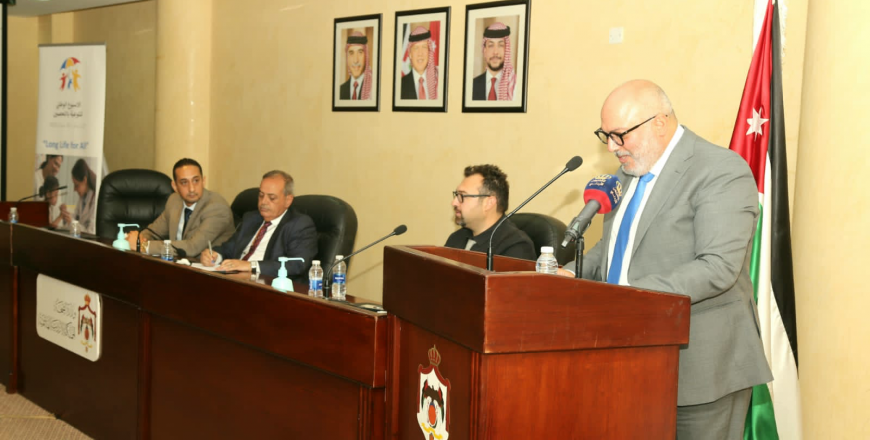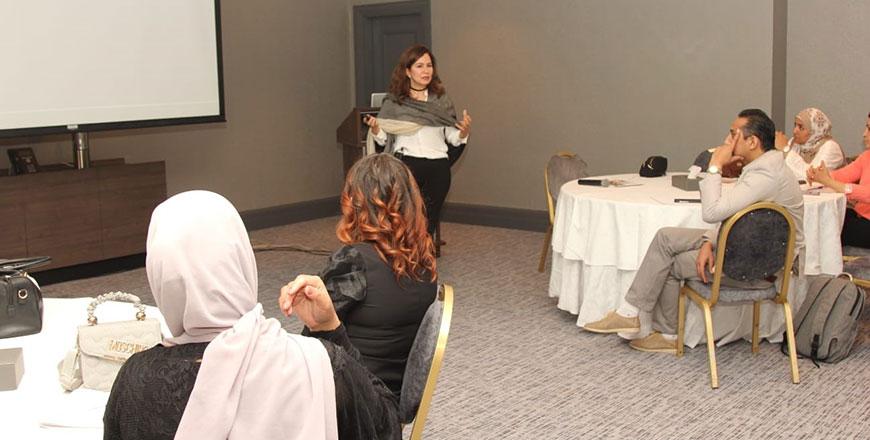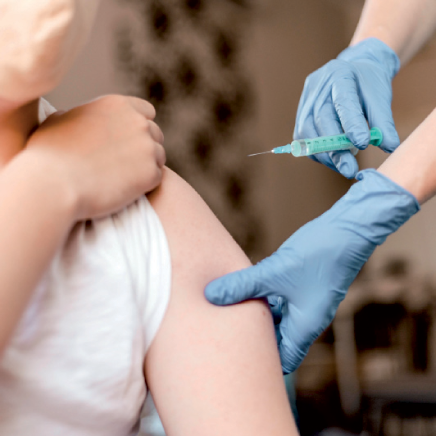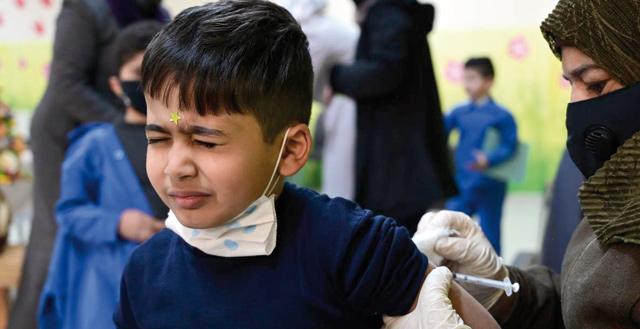You are here
Health Ministry conference highlights importance of vaccinations
By Mays Ibrahim Mustafa - Jun 01,2022 - Last updated at Jun 01,2022

The Ministry of Health on Monday organised a conference on the importance of vaccinations to protect people from various diseases, featuring a number of health experts (Photo courtesy of Health Ministry)
AMMAN – The Ministry of Health on Monday organised a conference on the importance of vaccinations to protect people from various diseases, featuring a number of health experts.
The conference was held with reference to World Immunisation Week, celebrated every year in the last week of April and as part of the ministry’s efforts to raise awareness of vaccinations.
Deputising for Secretary General of the Health Ministry Raed Al Shboul, Ayoub Al Siyada said: “The Ministry of Health is the largest provider of health services [in the Kingdom].”
He noted that the ministry provides primary health services through roughly 700 health centres distributed over Jordan’s various governorates, “including 540 health centres which provide maternity, childhood, and vaccination services”.
Siyada added that the Health Ministry provides vaccines for free to all children residing in Jordan regardless of their nationality as part of the Jordanian National Programme for Vaccination, which he described as “the cornerstone of primary healthcare programmes”.
Director of the Directorate of Communicable Diseases of the Health Ministry Mohammad Hawarat noted that, since its establishment in 1979, the Health Ministry has continued its efforts to develop the programme, counting it among its top priorities.
In 2000, the ministry replaced the measles vaccine with the measles, mumps, and rubella (MMR) vaccine, adopting combination vaccines which help provide protection against two or more diseases, he said, noting that “this reduced the number of shots a child has to take and notably increased vaccination turnout and coverage”.
“In 2020, despite the heavy burden of the COVID-19 pandemic on the ministry of health and the health sector as a whole, the ministry was able to add the Hepatitis A vaccine on the list of vaccines it provides free of charge” and it’s currently working on adding the Pneumococcal conjugate vaccine and the Varicella vaccine to that list, Hawarat added.
Automating the national programme for vaccination and launching a platform specialised in children’s vaccination, is also among the ministry’s works in progress, he continued, noting that this “will reflect positively on the quality of the vaccination process and the accuracy of the information provided by the national programme”.
Nizar Maswada, head of the National Programme for Vaccination, pointed out that despite its various accomplishments, the programme faces a number of challenges.
The increase in birth rates is raising the number of people who benefit from the programme annually, while it faces insufficient finances and a global increase in vaccine prices, he said, noting that the vaccination sector also faces a lack of healthcare professionals.
Moreover, many citizen’s lack of trust in vaccinations, as a result of some of the rumpus spread about COVID-19 vaccines, “has led to a decrease in the coverage of some vaccines, therefore raising the risk for the return of some diseases such as measles and polio”, Maswada added.
Director of external affairs for the American multinational pharmaceutical company Merck Sharp and Dhome (MSD), Hassan Bibi, pointed out the importance of “a partnership between both the public and the private sector” in improving patients’ access to healthcare services.
He added that MSD’s work focuses on making some diseases “a thing of the past” through the use of science to save and improve lives.
Related Articles
AMMAN — The Ministry of Health, in cooperation with the Merck Sharp and Dhome (MSD), an American multinational pharmaceutical company, on We
AMMAN — The Measles-Rubella (MR) vaccine, which is provided free of charge for targeted children in Jordan, is safe and effective at protect
AMMAN — The Ministry of Health has been constantly working to increase public awareness on the importance of routine vaccination for childre

















